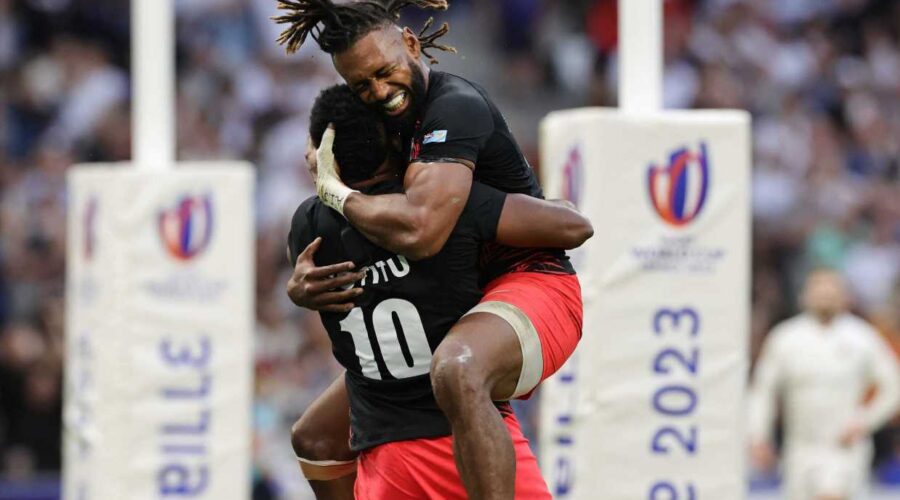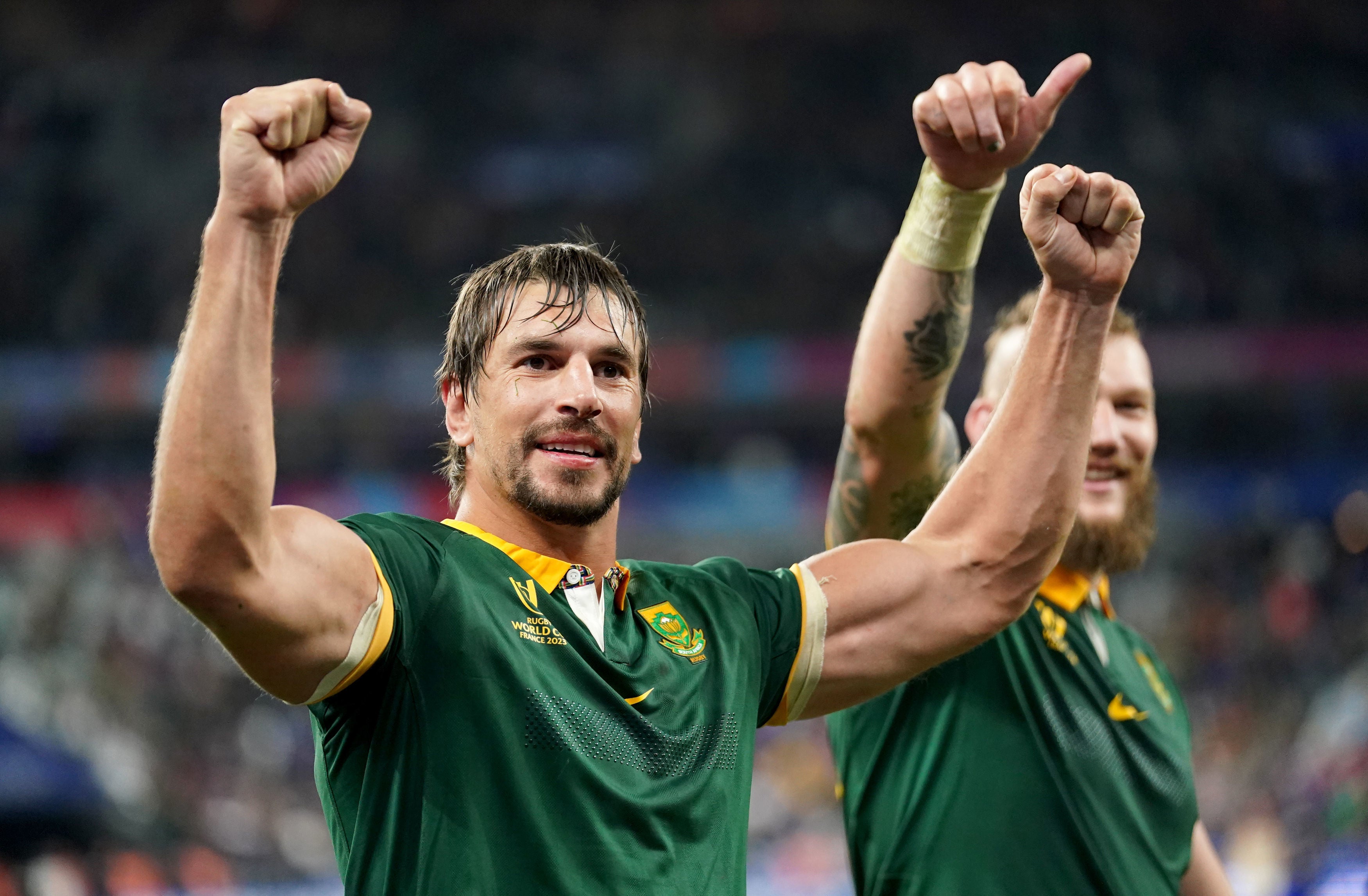What’s next for Fiji after a Rugby World Cup to remember
Captain Waisea Nayacalevu embraces Vilimoni Botitu after the fly half’s try against England
Sign up to our free sport newsletter for all the latest news on everything from cycling to boxing
Sign up to our free sport email for all the latest news
Thanks for signing up to the
Sport email
Never has it been clearer that Fiji do things differently. It can’t have been more than 90 minutes after defeat to England was confirmed when the sound of a Pacific Island beat and stomping feet bounced around the bowels of the Stade Velodrome, Simon Raiwalui’s beaten side making their Rugby World Cup exit with a boombox, and their heads, held high.
There was disappointment there, of course, perhaps most prominently on the face of the captain Waisea Nayacalevu, frustrated not just about the opportunities missed both against England and earlier in the tournament, but also perceived mistreatment by the officials. For coach Raiwalui, though, the overriding emotion was pride.
“The joy is there,” Raiwalui said. “We celebrate together, we suffer together. For 15 weeks these boys have worked hard and we will celebrate that. We’re hurting now in terms of the result but I couldn’t be prouder of this group in terms of what they’ve put in. They’ve built something for the next generation of Fijian rugby players. They’ve laid a foundation.
Recommended
“We’re hurting at the moment and it will hurt for a long time because it was something we had built and we thought we could go further. The belief in the team has always been there. I’m bursting with pride.”
Raiwalui’s mention of a foundation is key because it feels like finally, after years of governance issues and broken promises, one has been laid. Few of the Fijian starting line-up for Sunday’s quarter-final represent the Fijian Drua, but the impact of the Super Rugby Pacific franchise could be felt off the bench: scrum half Simione Kuruvoli and back five forward Meli Derenalagi – a potential successor to Nayacalevu as captain with the centre unlikely to make another World Cup – were among those to produce prominent cameos.
The Drua project is still new. It is only a couple of years since their injection into the southern hemisphere’s premier club competition but already it is paying dividends, the extra cohesion and competition driving Fiji forward. There are the right people in place to build it, too, not just in Raiwalui – previously high performance general manager at the union – but also former Harlequins chief executive Mark Evans, involved off the field with the Drua. With Raiwalui confirming that he will not be staying beyond the end of the year, finding the right fit as the next head coach is obviously crucial.
Meli Derenelagi (centre) captained the Fijian Drua to a Super Rugby Pacific quarter-final
An elevation into the international top tier is expected to follow the Drua’s addition to Super Rugby. Fiji are likely to gain immediate entry into the 12-team top tier of the new World League, ensuring that their growth can continue across consistent annual fixtures. Having a large Drua squad based domestically to form the bedrock of the national side should allow for a much easier transition into international campaigns.
While this might have been the last World Cup for stars like Levani Botia and Nayacalevu, it can be said with confidence that new ones will emerge – 20-year-old flanker Motikai Murray is a figure of budding back row brilliance, while rangy runner Joseva Talacolo and prop Emosi Tuqiri are names to monitor.
There is uncertainty over the future of the sevens circuit but it remains a vital proving ground for Fiji, who will be eyeing a third successive gold medal in rugby’s condensed format at the Paris Olympics next summer.
There is a tendency to homogenise the experiences of Fiji, Samoa and Tonga, three very different nations clumped together given their relative proximity in the south Pacific. Fiji’s on-islands population is three times that of Samoa and Tonga combined, and there is thus less reliance on the diaspora to provide players. Providing opportunities to let the three nations thrive, rather than just survive, is vital, and different approaches will be required to ensure this.
Simon Raiwalui has proved a shrewd appointment as head coach
But certainly there appears a positive plan mapped out that will allow Fiji to fulfil their potential. “We’ve come a long way in this World Cup,” said Derenalagi. “Even though we are hurt and we didn’t get the result for today’s game but as a brotherhood that we formed and the bond we formed inside the team.
“That’s what family means to us, even though we are far away from our family. As a team we try to build a family and a brotherhood and that’s what you can see with our celebrations, even though we lost.
“We reached the quarter-final in 2007 and after 16 years we reached it again. We will make sure that at the next World Cup, we will climb higher again.”
Source: Read Full Article






